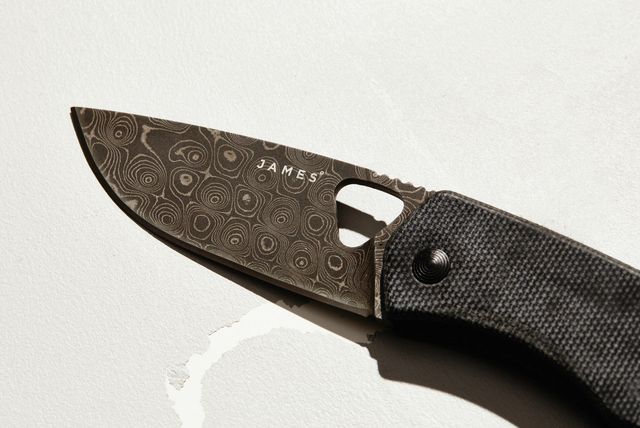If you happened to be reading the “Science Times” section of The New York Times on Tuesday, September 29, 1981, you might’ve learned that a centuries-old knife puzzle had been solved.
Along with a headline about carbohydrate cravings that could’ve been written today, the paper revealed the story of Damascus steel, a material that’s now well known among knife makers and owners, if not widespread. But before the late 20th century, Damascus was still the stuff of legends.
It was during the times of Alexander the Great — and later, the Crusades — that Damascus steel earned its mythical reputation. Middle Eastern blacksmiths used special steel imported from India called wootz to make weapons that were remarkably lightweight yet strong and characterized by a rippling appearance. Swords retained an edge through battle after battle, as if forged with magic.
It’s believed that the stuff inspired Valyrian steel, the rare White Walker-thwarting material from George R.R. Martin’s A Game of Thrones. In that 1996 novel, the method of making the steel was lost with the collapse of the Valyrian civilization. Its real-world counterpart tracks a similar history; whether due to the replacement of swords by firearms or the depletion of the quarries where the raw material for wootz came from, or any other number of speculative theories, the practice of making authentic Damascus steel was lost.
Until ’81, according to The Times, when two Stanford metallurgists sought a superplastic metal. The recipe they ended up with included a proportionally high level of carbon (one of the principal components of steel) and a similar overall makeup to surviving Damascus blades.
Today, blacksmiths make Damascus by welding different types of steels together and working them into folded layers. Depending on the steels included in the mix, the final product will exhibit different qualities. The process is rigorous and hands-on and as such, most Damascus steel comes from the workshops of craftsmen like Devin Thomas, Chad Nichols and Brad Vice, to name a few. Some larger operations, like Damasteel in Sweden, use a powder metallurgical process to maintain a high level of control over the look and characteristics of the final product.
We’ll never know how closely modern Damascus steel matches up to the ancient original — and some purists refuse to acknowledge new varieties with the Damascus name at all. But we do know that it makes for a formidable and uncommon combination of edge retention and toughness in a knife.
So why don’t we see more Damascus blades? “The number one issue is pure cost,” says The James Brand’s Ryan Coulter. Damascus steel knives also require some coddling. “[They] are generally high-carbon steels and lower in nickel and chromium and other materials that make stainless steel,” he explains. That means they have to be cleaned and oiled and lubricated, so you have to invest time and energy into maintaining it.” But thanks to its other legendary benefits, you won’t have to sharpen it very often.
And then there’s that undulating ripple in the blade. While it may be difficult to tell one type of stainless steel apart from another, Damascus identifies itself with a flourish, making its quality, if not its history, known at first glance.























